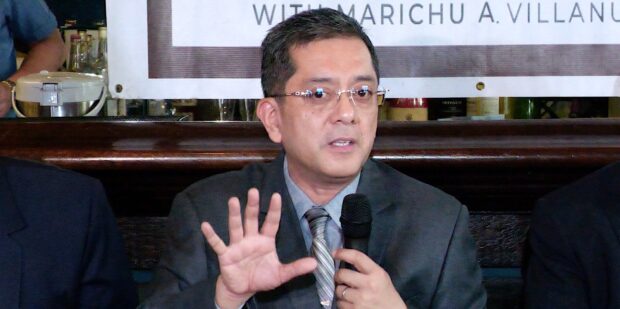Citing other polls, Comelec chair sees lack of time for Cha-cha plebiscite
There may not be enough time for a plebiscite on constitutional amendments once the Commission on Elections (Comelec) starts preparing for next year’s midterm elections, its chief said on Friday.
“We are ready to conduct a plebiscite, but we can’t do it if there’s going to be national and local elections and barangay and Sangguniang Kabataan elections,” Comelec Chair George Erwin Garcia told reporters.
READ: Senate, House clash over people’s initiative for Charter change
He said all modes of constitutional amendments as provided by the 1987 Constitution—through a constitutional convention, constituent assembly or people’s initiative—will end in a plebiscite.
“[But] the Comelec is very hard-pressed for time. We can’t define any timeline. It depends on when the petition will be filed and what will be filed,” he added.
60 to 90 days
According to the Constitution, the plebiscite for amendments approved through a constituent assembly must be held within 60 to 90 days.
Under Republic Act No. 6735, or the 1989 Initiative and Referendum Act, a plebiscite for amendments through a people’s initiative must be set also within 60 to 90 days—after a 60-day period to verify the signatures on a people’s initiative petition, whose sufficiency in form and substance the poll body must first approve.
Garcia defended the poll body against those questioning its promulgation of guidelines to govern people’s initiative, saying that its authority comes from the Constitution.
Rule-making power
“It’s automatic that if you’re a quasi-judicial, quasi-legislative, or administrative body, rule-making is part of your power. As long as there is a law, we have the power to promulgate implementing rules and regulations,” Garcia said.
Opposition Sen. Aquilino Pimentel III on Thursday questioned the Comelec’s authority to formulate guidelines on the signature sheets submitted by the people’s initiative campaign.
READ: Speaker denies senator’s claim: ‘Nagma-marites siguro’
Garcia said the Comelec enacted a resolution as early as 2020 precisely to provide implementing guidelines for RA 6735—particularly on accepting signatures.
“So, where did we get the power? In the Constitution. It is the power to enforce and administer election laws,” he said. INQ
